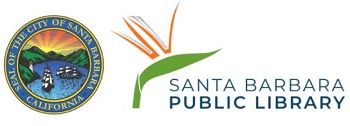This Land Is Our Land: Myths, Facts, and Mysteries
(eAudiobook)
Description
Also in this Series
More Details
Reviews from GoodReads
Citations
John Rayburn., John Rayburn|AUTHOR., & John Rayburn|READER. (2023). This Land Is Our Land: Myths, Facts, and Mysteries . Blackstone Publishing.
Chicago / Turabian - Author Date Citation, 17th Edition (style guide)John Rayburn, John Rayburn|AUTHOR and John Rayburn|READER. 2023. This Land Is Our Land: Myths, Facts, and Mysteries. Blackstone Publishing.
Chicago / Turabian - Humanities (Notes and Bibliography) Citation, 17th Edition (style guide)John Rayburn, John Rayburn|AUTHOR and John Rayburn|READER. This Land Is Our Land: Myths, Facts, and Mysteries Blackstone Publishing, 2023.
MLA Citation, 9th Edition (style guide)John Rayburn, John Rayburn|AUTHOR, and John Rayburn|READER. This Land Is Our Land: Myths, Facts, and Mysteries Blackstone Publishing, 2023.
Staff View
Grouping Information
| Grouped Work ID | 11a8e617-0f2c-2318-0b74-c0ddea2f4cc8-eng |
|---|---|
| Full title | this land is our land myths facts and mysteries |
| Author | rayburn john |
| Grouping Category | book |
| Last Update | 2023-07-08 18:00:16PM |
| Last Indexed | 2024-05-07 02:19:24AM |
Book Cover Information
| Image Source | hoopla |
|---|---|
| First Loaded | Sep 7, 2023 |
| Last Used | Dec 29, 2023 |
Hoopla Extract Information
stdClass Object
(
[year] => 2023
[artist] => John Rayburn
[fiction] =>
[coverImageUrl] => https://cover.hoopladigital.com/bsa_9798212384995_270.jpeg
[titleId] => 15475908
[isbn] => 9798212384995
[abridged] =>
[language] => ENGLISH
[profanity] =>
[title] => This Land Is Our Land
[demo] =>
[segments] => Array
(
)
[duration] => 9h 27m 0s
[children] =>
[artists] => Array
(
[0] => stdClass Object
(
[name] => John Rayburn
[artistFormal] => Rayburn, John
[relationship] => AUTHOR
)
[1] => stdClass Object
(
[name] => John Rayburn
[artistFormal] => Rayburn, John
[relationship] => READER
)
)
[genres] => Array
(
[0] => History
)
[price] => 2.49
[id] => 15475908
[edited] =>
[kind] => AUDIOBOOK
[active] => 1
[upc] =>
[synopsis] => Throughout the stories here is information on how places, cities, and states got their names. However, questions arise because Native American tribes of the day didn't yet have a written alphabet, and none of those came along until Sequoyah invented one in 1821, one that was actually more of a syllabary with symbols that stood for consonant/vowel sequences and could make words, basically just a writing system.One such word example is Tsa-La-Gi in Oklahoma, a recreated Cherokee settlement showing what one was like before European contact. The name means "Cherokee," and if you say it out phonetically as "Say-la-ghee," it's understandable how that was understood as the word Cherokee. It wasn't written out because there wasn't yet a means of doing so.Many such words were heard by early frontiersmen, most of whom had little or no formal education. As a result, they pronounced and spelled anyway they heard various words, and because that was all that was available, their decisions held up more often not. It brings to mind an old phrase aimed at accepting something while having at least a degree of skepticism about the actual truth or meaning, and that is to "take it with a grain of salt." This all means if you come across something here with either skepticism or at least no specific literal interpretation, don't fret. The information is interesting, whether or not always logical or with an occasional small degree of accuracy. Don't let any word choices by those early, often under-educated frontiersmen cause you to be "anti-semantic." We repeat the suggestion to just go along with whatever is mentioned, but remember to have that "grain of salt" handy.
[url] => https://www.hoopladigital.com/title/15475908
[pa] =>
[subtitle] => Myths, Facts, and Mysteries
[publisher] => Blackstone Publishing
[purchaseModel] => INSTANT
)
